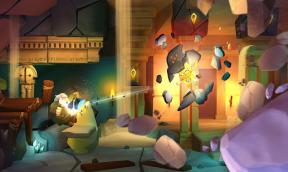Intensive preparation for the Unified State Exam 2023. Pass the Unified State Exam in Literature and enroll in the budget program - course 125,700 rubles. from Maximum Education, training 146 academic hours, date November 30, 2023.
Miscellaneous / / December 03, 2023
What do you need to know about the Unified State Exam in Literature?
The Unified State Exam in Literature lasts 3 hours 55 minutes. During this time, the graduate must answer 15 short-answer questions, write 4 mini-essays and 1 long essay. It is important to thoroughly know the theory and write essays on algorithms in order to complete all tasks
In tasks No. 10-14 there may be works NOT from the codifier. therefore, the student must be able to analyze literary works, know the genres and trends of literature
According to FIPI statistics, students often lose points in essays due to speech and grammatical errors. They receive special attention in the online course.
For whom
11th grade students
Duration
from 1 month to a year
Start of groups
in August-October
Training format
in class and online
Prepare for the Unified State Exam 2023 using up-to-date materials with MAXIMUM Education!
We have studied all the changes, pitfalls and subtleties of the Unified State Exam format so that students receive maximum points on the Unified State Exam.
And the teacher also supports and motivates students, shows progress and sorts out mistakes so that you definitely go on budget.
260 000
students completed MAXIMUM courses
98,7%
received on the budget
360
experts create and update the course annually
Any graduate can enroll on a budget if they prepare for the Unified State Exam correctly
Therefore, we take legal responsibility for your results.
97% of MAXIMUM graduates entered the budget under a guarantee, join us!
- We passed the Unified State Exam with a score of 90+, entered a top university and take the Unified State Exam early every year.
- Passed selection and methodological training to explain in an interesting and understandable way
- Undergo subject and methodological trainings 2 times a month, exchange experiences and report on the results
- Speak at educational forums and in schools, conduct courses for school teachers
- Find a common language with teenagers, do not scold them for mistakes, answer questions
“The best motivation is you and your dreams! Believe in them, and I will help you achieve them!”
📆 Learn in class and online: 12 lessons every month
👩🏫 5 personal meetings with the teacher, lessons with an individual plan
📚 Groups up to 15 people
🧐 3 practice exams and individual error analysis
Let's study all the topics from the FIPI Codifier
Fiction as the art of words. Artistic image. Artistic time and space
Folklore. Genres of folklore
Content and form. Poetics. Style
The author's intention and its implementation. Artistic fiction. Fantastic
Literary movements and movements: classicism, sentimentalism, romanticism, realism, modernism (symbolism, acmeism, futurism), postmodernism
Literary criticism
Author's position. Subject. Idea. Issues. Plot. Composition. Epigraph. Antithesis. Stages of action development: exposition, plot, climax, denouement, epilogue. Lyrical digression. Conflict. Author-narrator. Author's image. Character. Interior. Character. Type. Lyrical hero. System of images. Portrait. Scenery. Speaking surname. Remark. “Eternal themes” and “eternal images” in literature. Pathos. Fable. Speech characteristics of the hero: dialogue, monologue; inner speech. Tale
The language of a work of art. Rhetorical question, exclamation. Aphorism. Inversion. Repeat. Anaphora. Fine and expressive means in a work of art: comparison, epithet, metaphor (including personification), metonymy. Hyperbola. Allegory. Oxymoron. Sound design: alliteration, assonance. Prose and poetry. Versification systems. Poetic meters: trochee, iambic, dactyl, amphibrachium, anapest. Rhythm. Rhyme. Stanza. Dolnik. Accent verse. Blank verse. Vers libre



